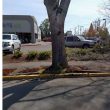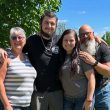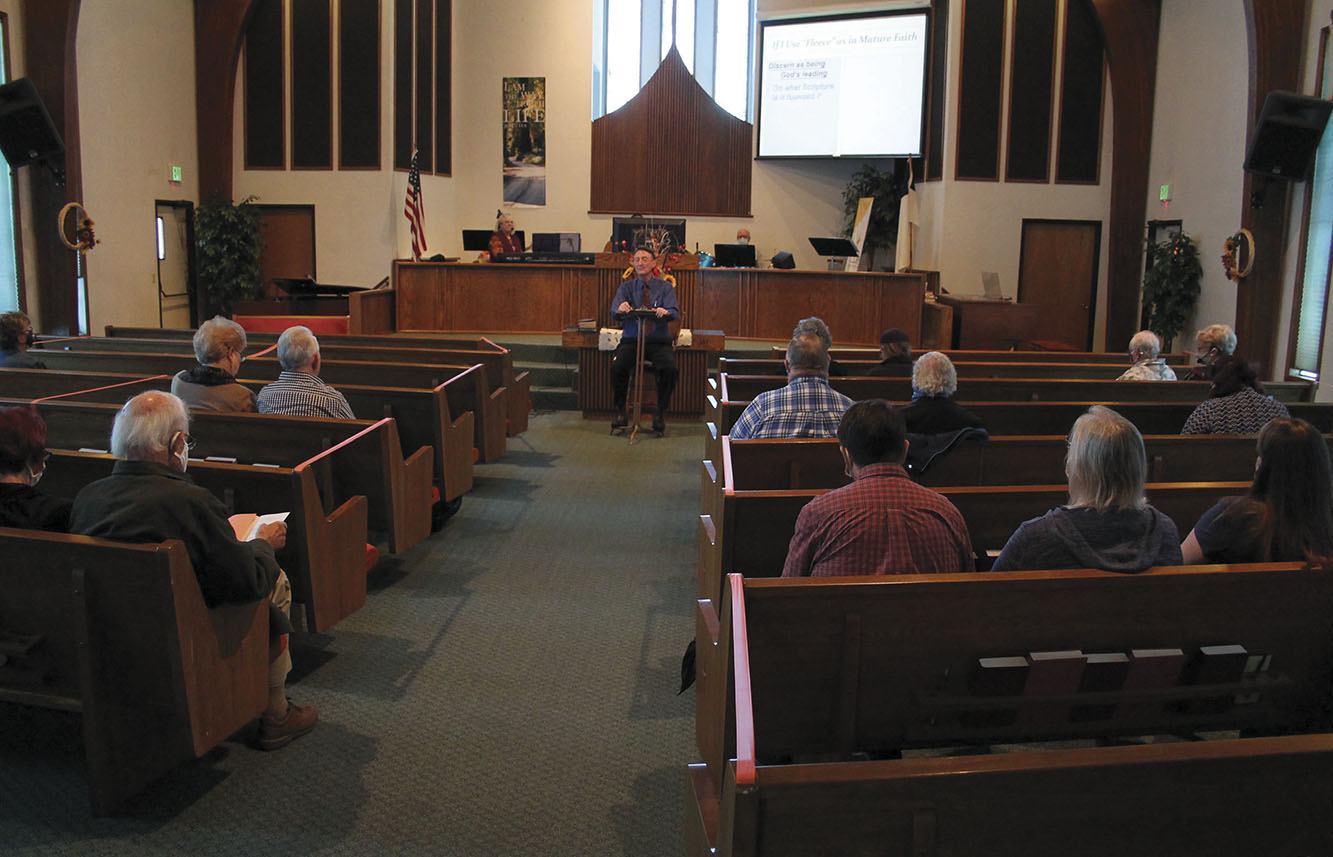By Sarah Brown
Lebanon Local
As a healthy man, as well as a Christian, Ted Haws believed maybe he had more of an edge against contracting COVID-19.
If anything, he was more worried about his wife, as she would more likely incur complications in her health from it, he said.
Yet Haws, pastor at Trinity Baptist Church in Lebanon, did come down with the virus, and weeks after being released from the hospital, he still couldn’t use his breath long enough to carry a conversation.
When COVID first hit the nation, Haws viewed the pandemic from his perspective as a Christian and what the Bible indicates, he said. His first reaction about it was in relation to chapter 24 in the book of Matthew, which is Jesus’ words about the beginning of the end times.
“When it pushed to the closing of our church, I, my family, the church and friends all grappled with compliance over restrictions,” he said.
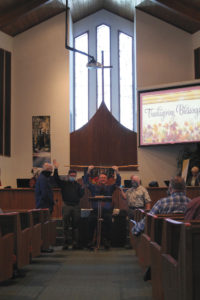
He struggled with the balance of two seemingly contradictory laws to abide by, he said.
On the one hand, the First Amendment directs that “Congress shall make no law respecting an establishment of religion, or prohibiting the free exercise thereof; or abridging the freedom of speech, or of the press; or the right of the people peaceably to assemble, and to petition the Government for a redress of grievances.”
On the other hand, the 13th chapter of Romans in the Bible states, “Let everyone be subject to the governing authorities, for there is no authority except that which God has established. The authorities that exist have been established by God.”
Haws said he complied as best he could, wearing masks in public spaces, observing distance rules, and offering drive-in worship service. As long as the community maintained cleanliness and care, he believed residents should have more liberty as opposed to those in Portland, which was in worse shape.
With statistics in east Linn County remaining low, Haws believed God was “cocooning our area in protection,” he said. In fact, he led a Sunday service at the Lebanon Veterans Home in Delta just one day before the outbreak in the care facility’s Bravo unit became publicly known.
“Not much has ever made me afraid,” he said. “This was just another event for enduring.”
Haws said he doesn’t know how he contracted the virus. He mowed the lawn – maskless – on Monday, Sept. 14, inhaling stirred up ash from the state fires. The following Friday, he fixed a downspout during a big storm, getting himself wet and cold.
A couple days later, he had a fever, and six more days later landed in the hospital where he remained for eight days with complications of pneumonia.
“Somehow, I gathered COVID that joined with it,” he said. “I lost 15 pounds in 15 days, as well as feeling I’ve lost 15 years of life’s strength.”
Even now, a month later, Haws still gets “wobbly” and weary from doing one task, he said. Only recently, Nov. 8, was he able to preach for the first time since he left the hospital.
“Now, five weeks after, I still am wearied from just having a normal day’s activity. The next day can feel like I’ve run a half marathon,” he said.
Though his wife did weather a few days of fever at home, she never contracted the virus, he said.
“I’m the only person of our church who’s gotten this,” he said. “So by humbling, God has
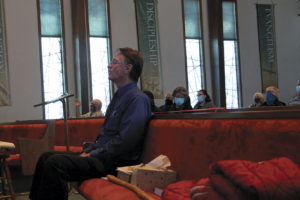
developed greater sympathy in me.”
He noted the sacrifice, professionalism and personhood of the local essential workers in Samaritan Lebanon Community Hospital’s critical care unit who cared for him.
Today, Trinity Baptist Church holds its services indoors, with distancing markers on its pews. Additionally, every day he uses an industrial strength ultraviolet light in the church to clean the air.
“To anyone feeling rebellious to this pandemic, I say ‘rethink your attitude,’” Haws said. “It is no respecter of persons, and disregarding precautions only makes you a more likely candidate.
“In reconsidering my attitudes, I’m reminded it’s when things come, not if.”


